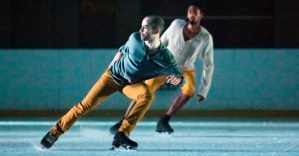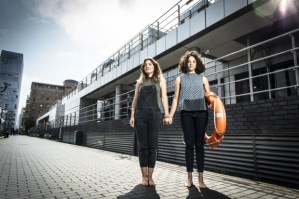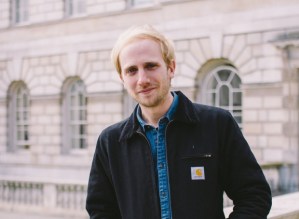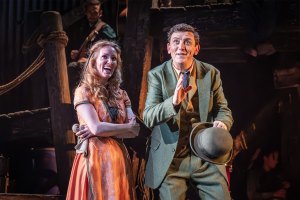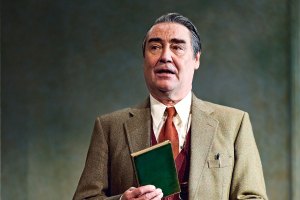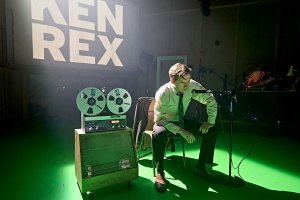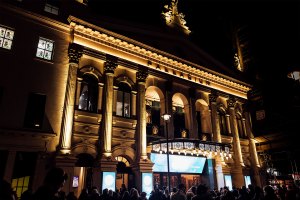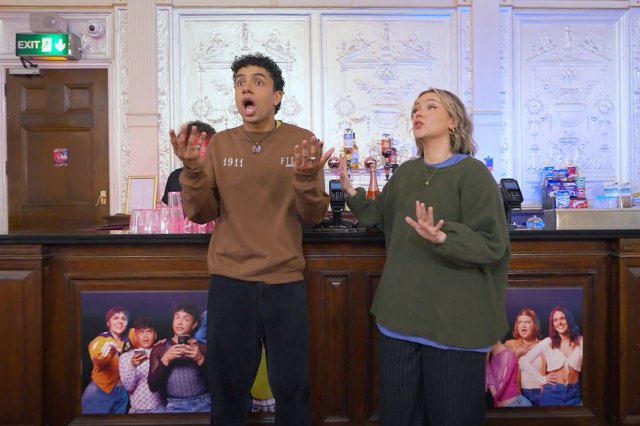Review: The Greatest Play in the History of the World (Traverse Theatre, Edinburgh Festival)
Julie Hesmondhalgh stars in this love story set on Preston Road
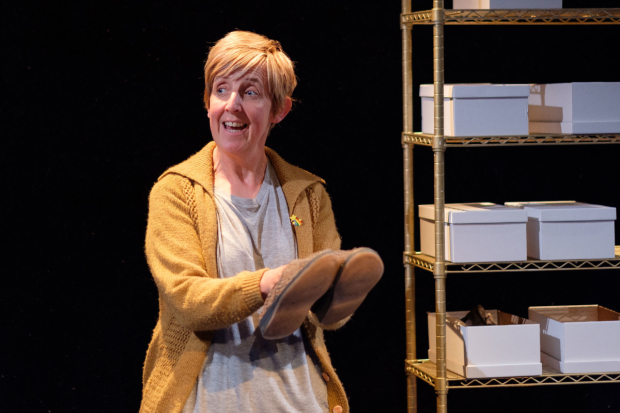
© Sid Scott
It's always a pleasure to spend an hour in the company of Julie Hesmondhalgh. She's such a truthful actor, mining her natural warmth and intelligence to create riveting and engaging characters. This monologue about life and love and time is a remarkable gift to her distinctive talent from her writer husband Ian Kershaw. It's just magical.
Somehow encompassing contemporary life in Lancashire street and the Voyager probes launched into the depths of space in 1977, it is carefully wrought and enticing piece of story telling that combines sci-fi fantasy with realistic detail. Wheelie bins and neighbourhood watch schemes rub shoulders with NASA experiments and theories of time.
Standing in her stockinged-feet on a stage covered in blue, spangled carpet (designed by Naomi Kuyck-Cohen), Hesmondhalgh begins by telling us about life in Preston Road, where one December night, time seems to stand still. Only two people are awake, looking out of their windows at one another. Tom, at Number 28 and Sara, at Number 27. Tom is a words man "particular favourites being cherish, marzipan and traffic cone" who has been unlucky in love and feels life is passing him by; Sara, a more practical type, is also worried that she is being left behind. Then there are Tom's neighbours, the Forshaws, who have been noisily building in their shed.
For years Mrs Forshaw, now terminally ill, has been a science teacher and she loves to tell her pupils about the Golden Record, the disc of sounds and images launched into space on the Voyager probes, which are designed to communicate the diversity of life and culture on earth to any extra-terrestrials who might find them. In Raz Shaw's perfectly modulated production, we hear the story in pre-recorded chunks between each scene.
As she talks about each character, Hesmondhalgh carefully takes a shoe box from two tall racks behind her, and places a pair of shoes to represent them onto the carpet. As she introduces other characters, she asks members of the audience if she can borrow their shoes to stand for the personalities she is describing. It is such a simple device but profoundly effective; it creates a bond between audience and performer.
Not that Hesmondhalgh really needs it. With the help of Kershaw's beautifully weighted words, she weaves a narrative web with such care and precision that you are spellbound. As the story gradually comes together in a view of time that is both mystical and scientific, it becomes extraordinarily moving.
There have, in recent years, been plenty of plays that deal with similar notions of space and time (Daniel Kitson's It's Always Right Now Until It's Later at this very theatre, Nick Payne's Constellations) in order to illuminate human emotions. But few have been so full of love. The Greatest Play in the History of the World (which incidentally Tom is writing) may not be quite that, but it is a lovely thing that, in its own quiet way, makes you feel better about the world by reminding you of its wonder.





